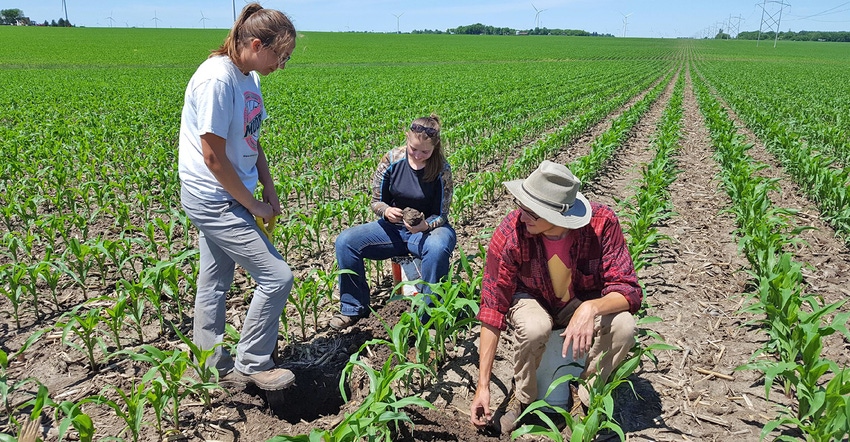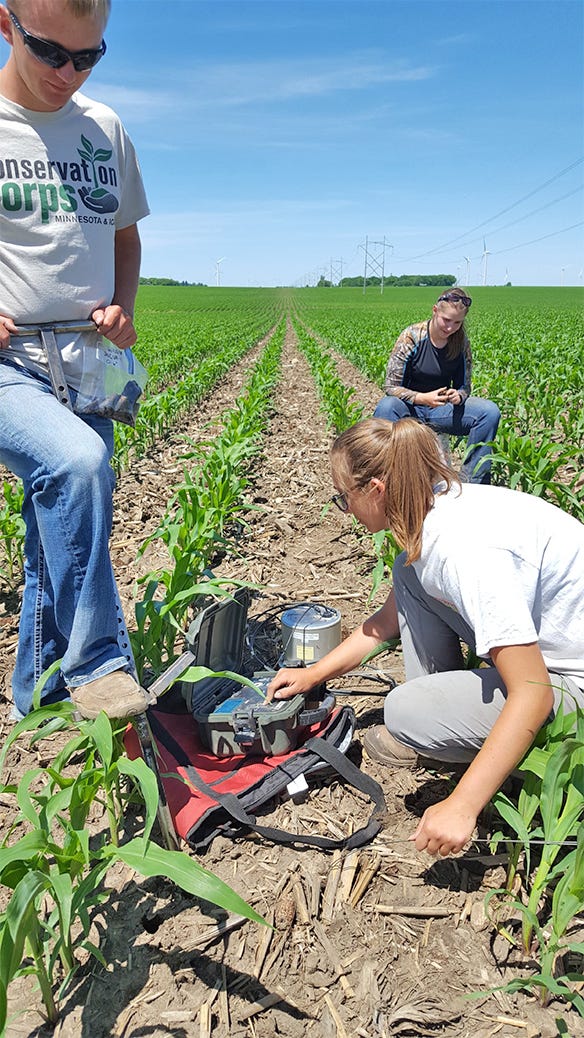June 20, 2018

Research into healthier soil that could support new agricultural practices in southern Minnesota is moving forward with the start of a three-year study in Mower County, Minn., led by the local conservation district.
Staff with the Mower Soil and Water Conservation District recently joined officials from Minnesota’s Riverland Community College and The Hormel Foundation to mark the start of a soil-health research project. They gathered at Riverland’s West Building on the Austin, Minn., campus at a new soil lab being developed by the college’s new Center for Agricultural and Food Science Technology.
Lacking an adequate research room at its Austin office, Mower SWCD reached out to Riverland for possible use of the new lab space. Now that lab — which will be fully equipped by late summer — has been getting use by Mower SWCD for storing and analyzing soil samples taken from dozens of plots representing different types of farmland in Mower County, according to a news release from Mower SWCD.
Steve Lawler, Mower SWCD’s certified soil scientist, leads the research and soil sampling with paid staff and students from the University of Minnesota and University of Wisconsin-River Falls. A Riverland agricultural student also is assisting with the project as a Conservation Corps summer apprentice for Mower SWCD.

SOIL SAMPLING: Conservation Corps summer apprentice Luke Risius (left), a Riverland Community College ag student working for Mower SWCD, works with students from the University of Minnesota and University of Wisconsin-River Falls June 13 to take cores of soil samples for analysis from a farm field near Elkton, Minn.

“The strong support and partnerships we now enjoy with Riverland and The Hormel Foundation have drawn interest across the state,” Lawler says. “Agriculture always has played a big role in Mower County and surrounding counties, and together our efforts will support farmers who are making changes to their agronomic practices.”
Interest in cover crops and other soil-health practices such as minimum tillage and no-till have been increasing in Mower County and southern Minnesota. However, many local farmers want more data and scientific evidence before making changes in their fields, Lawler says.
In 2017, Mower SWCD was approved for a $98,000 grant from The Hormel Foundation to conduct soil-health research to look at the benefits of incorporating cover crops and other soil-health practices into farm operations. At a cost of about $200,000 overall, the project will match the foundation’s grant with state “capacity” funds given annually by the Minnesota Board of Water & Soil Resources, and in-kind services from partner agencies.
The study will establish baseline data and start measuring soil property changes over time as soil-health practices are incorporated. Researchers will quantify typical soil properties in ag use before land-use changes to measure varied conditions.
The project also will provide important data that can be incorporated in evaluating farms and the land-use decisions being made for ag land, Lawler says, adding that it also should help the soil-health movement gain traction in the ag community.
Source: Mower SWCD
You May Also Like




